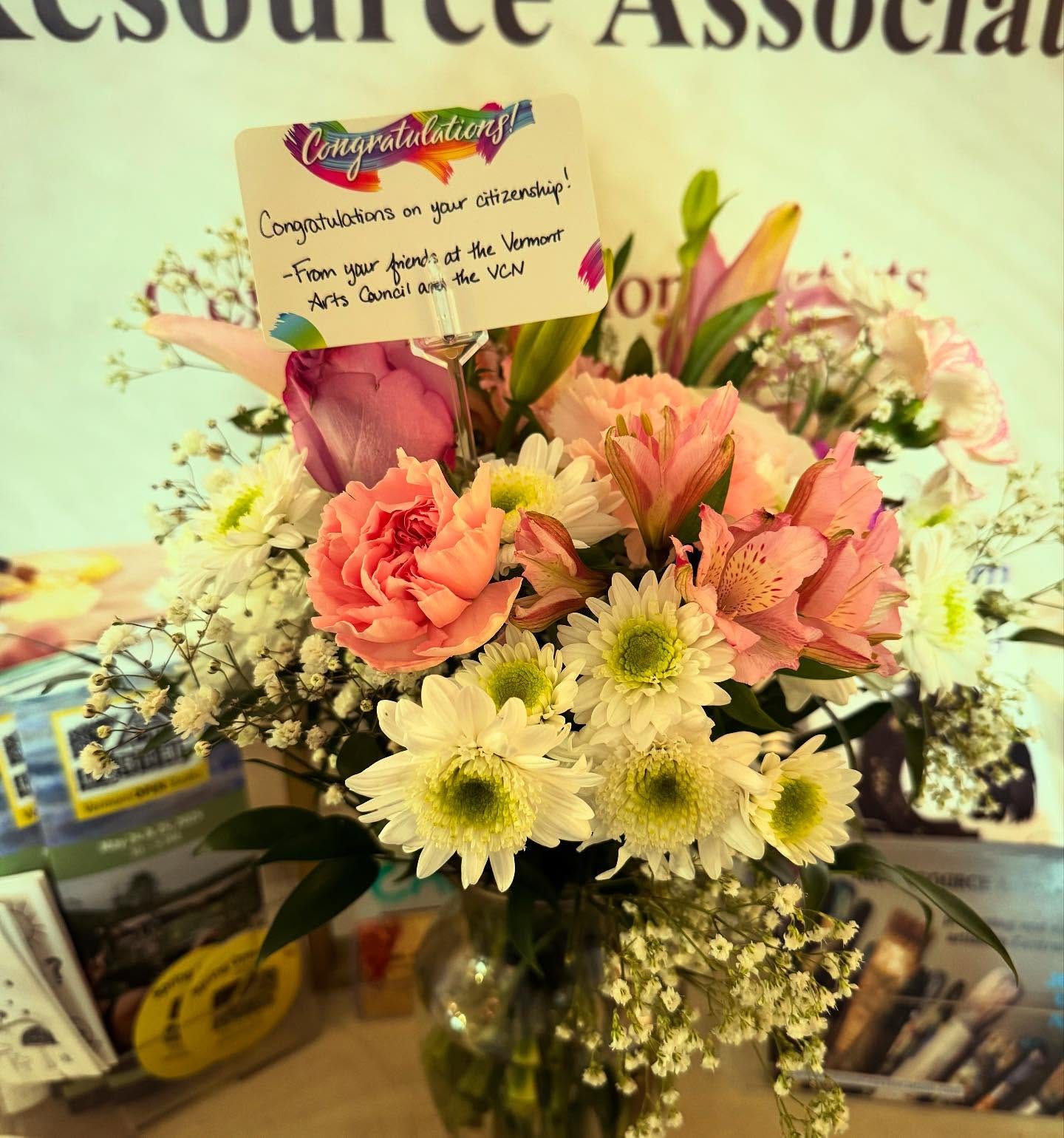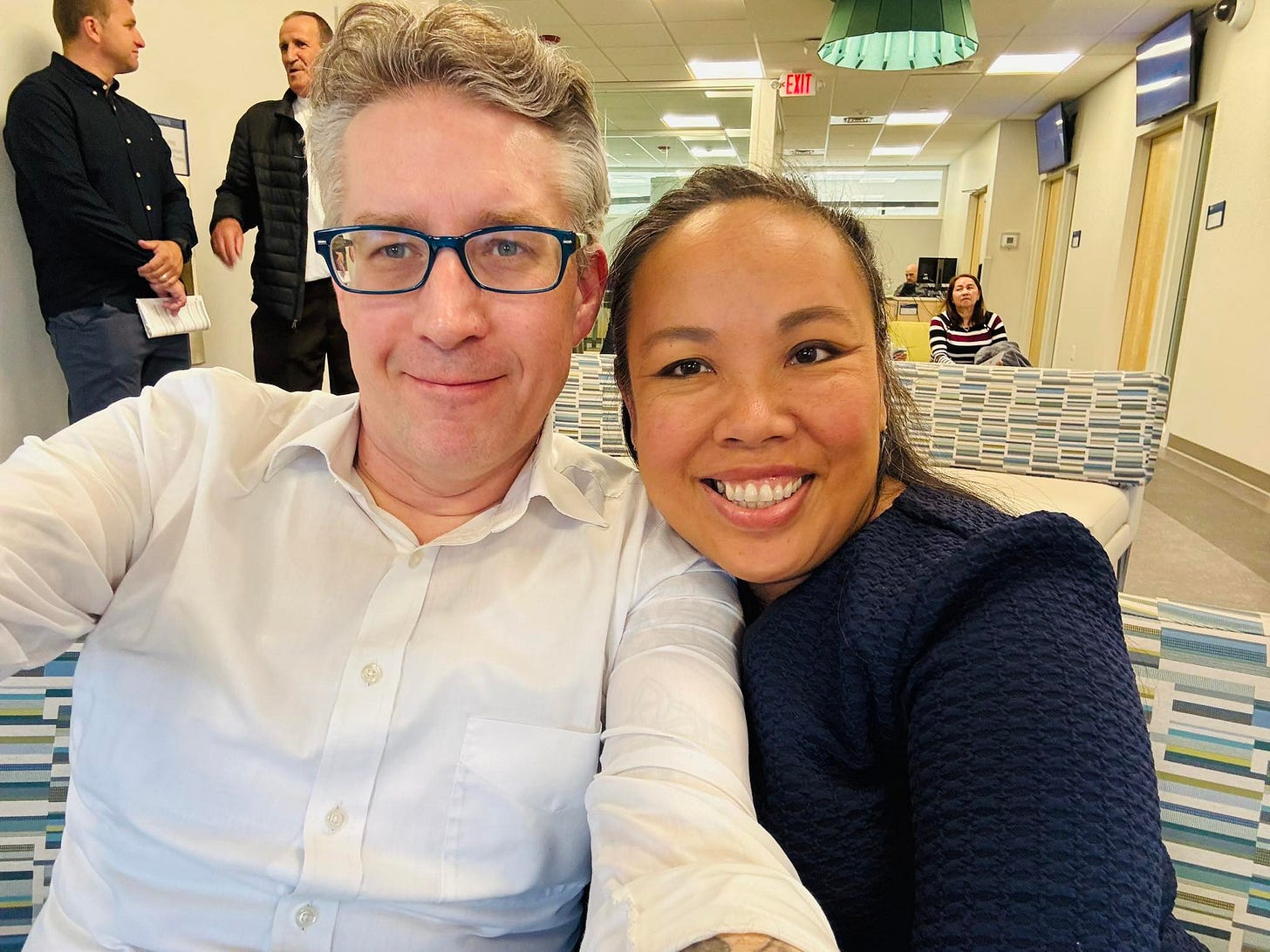Naturalization: an FAQ
It’s been three weeks since I’ve been sworn in as a US citizen. I’ve had several martini toasts, hearty handshakes and joyous congrats from far and wide. At one such toast, my friend turned to me and said, “now that you’re part of this effed up country, we expect you to fix it.” 😜
Most of my friends and acquaintances are US-born and have never experienced the naturalization process, so they had a number of questions. Below are some of the common ones.
Is “congratulations” the right response?
I did achieve all the requirements and passed the test for citizenship, so “congrats” is a totally acceptable response. The test itself was basic general US history and civics questions and the rest of my qualifications were taken care of by maintaining a long and uneventful residence here. Is it a big deal to me? Not really. Naturalization was an inevitability, but not actively sought after or needed.
My nonchalance is a deflection. I know other folks—my parents included—for whom citizenship is a bold and brave step towards a new future. Regardless of how long it took or what jungles we escaped from, whether it was soothed over with time or a necessary administrative precaution, we did it. And for that group effort, a round of applause.
What made you want to become a citizen?
I married my husband this past September after 20 years together. We got a similar question at that time: Why now? We’d been committed for so long, it seems immaterial how our relationship is legally defined. Milestones are proof of life though. Both my marriage and my naturalization were acts of recommitment to life, to a forward momentum. Even if my future holds divorce or expatriation (I hope not!) I have made strides in life’s maze.
I hate to say that naturalizing now was a protective measure more than anything. As marriage is a legal protection of sorts, so is citizenship. When I called my mother to tell her that I was going to take the test, she agreed it would be a good thing. “They’re just taking people now,” she said. I know, I replied. This has always been the risk for those of us who live here provisionally.
I’d become so accustomed to this ever present underlying threat that I hardly ever thought about it. I’d come to terms with what’s at stake. My husband has not had these decades of practice, and I could tell the worry was stressful to him. Naturalization was the least I could do to put his mind at ease. Citizenship as insurance policy.
What is the process for naturalization?
Some folks are surprised to know that citizenship is not automatically granted for longtime permanent residents like myself. The first step is to submit a form N-400 and pay the filing fee. As of this writing, the standard non-refundable fee for online filing is $710. Other costs for biometrics etc may be applied.
The agency will mail a letter with the appointment date and place for the test. USCIS already had my digital fingerprints, so they took a new photo of me at this test date, which would be the image used for the naturalization certificate. I didn’t know this, so I looked rumpled and frazzled in it. Once the test is passed, another letter arrives with the appointment date and place for the swearing in. At least this was how it went for me.
In my refugee days, I’d always thought I’d want my naturalization ceremony to be at the Vermont State House, which is where my father took his oath. It would be a cliche homecoming of sorts. But in the end, we decided it would be best not to wait until that could get scheduled.
On Oath Day, 10 soon-to-be-Americans and their supporting family and friends sat in the lobby of the USCIS offices in Colchester. Each of us were called in one at a time to go over the final details of our certificate and to reaffirm that we have not been seditious or otherwise acted in bad character since we were last there. After that is done, the administrator calls the group of us to the front. We raise our right hands and repeat the oath to the room of assembled witnesses. We are handed our certificates. This is the one time when mobile phone use is encouraged—it’s the kind of occasion one poses for.
What type of questions do they ask?
The citizenship test is a standard 100 questions that seem not to have changed since the end of the Cold War, save for a reference to 9/11 here or there. Because it’s all historic, geographic, or systemic, the answers are easy to memorize. One does need to know the state’s governor and congressional representatives. Lucky for me, that’s only 4 names, and they hardly ever change.
The test, as it’s actually administered, is only 10 questions, a mix of history and civics. Many are multiple choice or have any number of correct answers, so the chances are good that a reasonably studied person can pass with the minimum 6 correct answers. I had downloaded a mobile app that gave me practice tests, and I scored 100% almost every time.
In testing for English literacy, they had me read a question off an ipad and then write an answer on the ipad, which was supplied verbally. This is not one of the study questions. The testing agent took some time to review my parents’ naturalization to double check and ensure that I wasn’t already a citizen through some other administrative procedure. (I wasn’t.)
Is anything different now?
Not really.
I do want to add that while this was happening, I had pieces in various stages of writing-–some very clearly finished—that I wanted to share with you. But I chose not to. Because as my mother reminded me, and as we all witnessed in the news, “they” are just taking people now. I didn’t post my writings as an extra safety measure. Not that anything I write would be traitorous or anti-American. But I needed to ensure that this process remained as uneventful as possible until it was over.
Now back to it.



